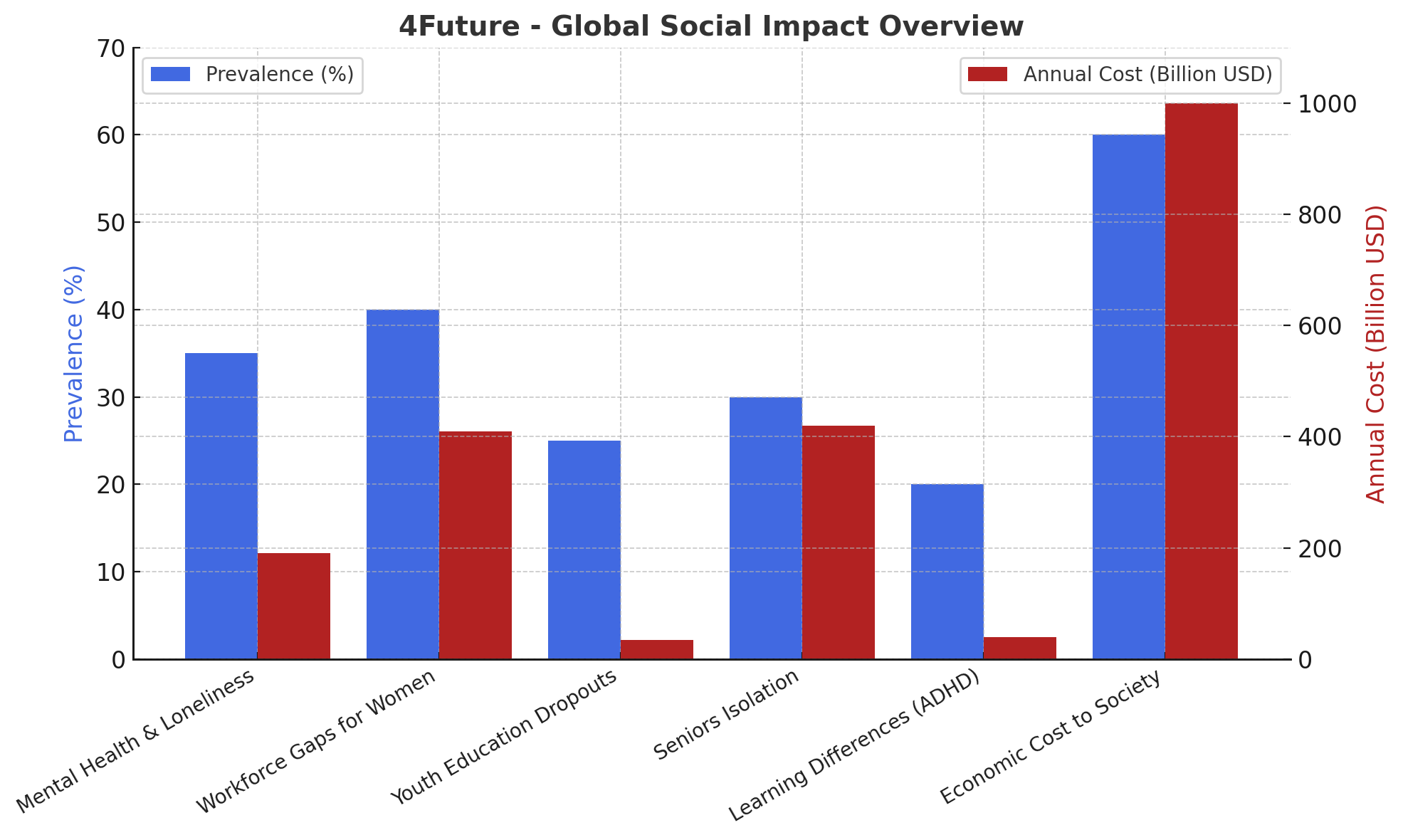
In the United States and globally, the growing challenges of mental health, loneliness, educational gaps, workforce unpreparedness, and social disconnection affect millions, with high costs for individuals, businesses, healthcare systems, and governments.
4Future addresses these interconnected crises through:
· Reducing loneliness and social isolation (CDC: Over 1 in 3 adults aged 45+ feel lonely regularly; NIA: increased dementia risk linked to isolation).
· Supporting women overwhelmed by household responsibilities and career gaps (BLS: Women carry an unequal load of unpaid domestic work)
· Empowering underserved youth to complete education and enter the workforce (NCES: Higher dropout rates in underserved communities.
· Helping seniors engage in meaningful intergenerational connections, protecting cognitive health and emotional well-being.
· Supporting individuals with ADHD and learning differences with adaptive learning models
· Preventing long-term healthcare costs associated with untreated mental health and burnout (APA: Workplace stress leads to $300 billion/year in costs in the U.S.)
· Aligning with government priorities on workforce development, health equity, mental health prevention, educational access, and family economic stability.
The Cost of the Issues we Help
This report summarizes major systemic challenges directly addressed by 4Future. Each area represents a significant social problem where 4Future provides targeted solutions through education, workforce preparation, technology access, leadership development, and inclusive programs.
• In globally, 30% of the population (approximately 2400 million people) are directly impacted by issues related to mental health & loneliness. Data Soure: WHO (Mental Health Atlas) / CDC / Ministério da Saúde Brasil.
• In globally, 38% of the population (approximately 3040 million people) are directly impacted by issues related to workforce gaps for women. Data source: WEF Global Gender Gap 2023 / BLS / IBGE / OECD.
• In globally, 30% of the population (approximately 2400 million people) are directly impacted by issues related to youth education dropouts. Data source: UNESCO GEM / NCES / INEP Brazil.
• In globally, 27% of the population (approximately 2160 million people) are directly impacted by issues related to seniors isolation. Data source: WHO / NIH / IBGE / NIA (US Aging Reports).
• In globally, 15% of the population (approximately 1200 million people) are directly impacted by issues related to learning disabilities & ADHD. Data source: CDC / NCLD / ABDA / UNAM / WHO ICD-11.
• Globally, the estimated economic cost generated by these combined challenges exceeds $6 Trillion USD annually. Source: World Bank / OECD / Deloitte / McKinsey Global.


